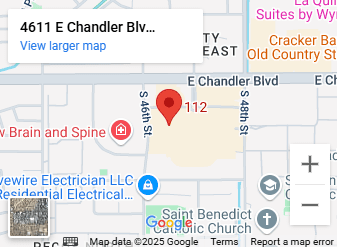UnderstandingBusiness Broker Services for Maximum Profit
Business brokerage is an essential function for business owners who wish to maximize the value of their company when selling. The process involves a professional intermediary who manages everything from valuation to buyer screening and negotiations in a confidential manner. Business brokers help with pricing, positioning, and structuring a sale to increase the likelihood of a successful transaction. With experienced brokers, sellers can navigate the complex M&A market to secure maximum profit while maintaining confidentiality and reducing personal stress. This article details the role of business broker services, covering valuation, marketing strategies, buyer qualification, negotiation tactics, comprehensive support, and criteria for selecting the right broker. The insights provided are particularly useful for business owners in Arizona seeking the best deal. By understanding each stage—from initial valuation to closing—sellers learn how brokers facilitate smooth transactions and add strategic value.
What Are Business Broker Services and How Do They Work?
Business broker services facilitate the sale and purchase of businesses by acting as intermediaries. They connect sellers with potential buyers, guide both parties through the transaction process, and work to maximize the sale price through expertvaluation, marketing, and negotiation.
What Roles Do Business Brokers Play in Selling a Business?
Business brokers act as advisors on marketing a business, prepare financial statements and supporting documents, perform thorough business valuations, and identify ideal buyers. They help draft offers, manage due diligence, and ensure all legal and regulatory requirements are met. Their expertise in market dynamics and buyer behavior prevents common pitfalls and avoids undervaluation.
How Does a Business Broker Facilitate Buyer and Seller Connections?
Brokers utilize an extensive network of qualified buyers—from private equity firms to individual investors—to expedite matching. They use both online and offline channels, including proprietary databases, to target buyers with proven acquisition records. By screening buyers early and verifying financial credentials, brokers maintain transaction momentum and create a confidential space for negotiation while protecting sensitive business information.
Why Is Confidentiality Important in Business Brokerage?
Confidentiality protects sensitive business information—from financial details to proprietary operations—from being exposed to competitors or the public. Keeping the sale process confidential ensures stable business operations and maintains the confidence of employees, customers, and suppliers. Brokers use strict confidentiality agreements and secure protocols to preserve the business’s value and market reputation.
How Does Business Valuation Impact Maximum Profit?
A thorough business valuation is key to maximizing profit, as it determines the company’s worth based on financial performance and market conditions. It helps sellers set a realistic price, avoid undervaluation, and negotiate from a position of strength, thus attracting serious buyers who recognize true worth.
What Methods Do Brokers Use for Accurate Business Valuation?
Brokers use multiple valuation methods including: – The income approach, which calculates present value based on future cash flows. – Market comparison, which benchmarks the business against similar transactions. – Asset-based valuation. They may also perform SWOT analyses to identify strengths and vulnerabilities. This combination of methodologies and market data provides a comprehensive valuation reflecting both tangible and intangible assets.
How Does ExpertValuation Increase Business Sale Value?
Expertvaluation supports the seller by providing a well-documented, defensible price. Quantitative research and detailed financial analysis justify the asking price, reduce buyer skepticism, and often lead to higher offers and improved sale terms.
When Should You Get a Business Valuation During the Selling Process?
It is advisable to get a valuation early. Early evaluation helps sellers understand their market position, identify areas for improvement, and set realistic timelines and expectations. In some cases, repeat evaluations can capture improvements or market changes over time.
What Marketing Strategies Do Business Brokers Use to Attract Qualified Buyers?
Business brokers employ multi-faceted marketing strategies to attract highly qualified buyers while keeping the business sale discreet. These strategies help reduce time on the market and drive up the sale price through competitive bidding.
How Do Brokers Leverage Online and Offline Marketing Channels?
Brokers use a mix of digital advertising, email campaigns, direct mail, and industry networking events. Online methods include proprietary databases, business-for-sale sites, and social media to target specific buyer segments, while offline methods may involve exclusive meetings, roundtables, and broker referrals. This dual approach ensures broad yet targeted exposure.
What Is the Importance of Targeting Strategic Buyers and Private Equity Firms?
Targeting strategic buyers and private equity firms is crucial; these buyers typically have the capital, operational expertise, and industry insight to integrate and grow the business quickly. Their involvement often results in higher sale prices and smoother negotiations due to their familiarity with due diligence processes.
How Does Effective Marketing Shorten the Selling Timeline?
Effective marketing creates a competitive bidding environment and attracts a larger pool of qualified buyers, which leads to quicker, more serious offers. This efficiency reduces the overall sales cycle and minimizes exposure risk, thereby contributing to maximum profit.
How Do Business Brokers Screen and Qualify Potential Buyers?
Screening and qualifying buyers is essential to ensure only serious inquiries move forward. This process speeds up the sale and safeguards the seller’s interests by filtering out unqualified prospects.
What Criteria Are Used to Qualify Serious Buyers?
Buyers are assessed based on financial capability, acquisition history, strategic fit, and motivation. Brokers review financial statements, liquidity or access to capital, and previous acquisitions, while documentation like bank statements and letters of intent provide additional credibility.
How Does Buyer Screening Protect Sellers and Maximize Sale Terms?
Thorough buyer screening minimizes wasted time and legal risks by focusing only on serious offers. By filtering out opportunistic buyers, brokers secure the best financial terms and maintain business continuity during the sale process.
What Role Does Buyer Qualification Play in Negotiation Leverage?
When multiple pre-qualified buyers are involved, competition increases negotiation leverage. Brokers can create a bidding environment where buyers compete, leading to higher offers and better deal terms while reducing uncertainties during closing.
What Negotiation Support Do Business Brokers Provide to Maximize Sale Price?
Negotiation support is a critical value add. Brokers balance assertiveness with diplomacy to optimize every aspect of the deal—from the price to post-transaction commitments—ensuring a higher final sale profit.
How Do Brokers Negotiate Favorable Terms for Sellers?
Brokers use tactics such as anchoring high valuations, structuring clear deals, and leveraging multiple offers to boost the sale price. They advise on earn-out or seller financing options and mediate between legal and financial advisors to resolve complex terms.
What Common Challenges Arise During Negotiation and How Are They Handled?
Challenges like valuation disagreements, due diligence contingencies, and buyer financing issues are addressed through clear evidence, contract clarification, and compromise solutions. A broker’s past experience helps anticipate and proactively resolve these issues.
How Does Professional Negotiation Increase Final Sale Profit?
Professional negotiation ensures that sellers do not settle for less than the intrinsic value. Using competitive bidding techniques, brokers can raise the price by 10–20% in many cases while minimizing delays and reducing transaction costs.
What End-to-End Support Do Business Brokers Offer Throughout the Sales Process?
Business brokers provide comprehensive support from initial consultation to final closing. This full-service approach reduces the seller’s administrative burden and ensures a seamless transition, contributing to higher profit and minimal disruption.
How Do Brokers Manage Transaction and Closing Assistance?
Brokers oversee every transactional detail, including preparing legal documents, coordinating with lenders and attorneys, ensuring all sale conditions are met, scheduling escrow, and resolving last-minute issues. Their active role guarantees efficient closings in compliance with regulatory standards.
What Ongoing Support Is Provided From Consultation to Closing?
Throughout the process—from valuation and marketing to screening and final negotiations—brokers provide regular updates and strategic advice. They guide sellers on regulatory compliance, due diligence, and post-sale transitions to ensure a smooth, informed process.
How Does Broker Support Reduce Seller Stress and Improve Outcomes?
By handling complex details and negotiations, brokers relieve sellers of administrative and emotional burdens. Their guidance ensures confidentiality, minimizes risks, and allows sellers to continue focusing on daily operations until the sale is complete.
How Can You Choose the Right Business Broker to Maximize Your Profit?
Selecting the right business broker is critical for achieving the best outcome. The ideal broker offers strategic insights, a robust buyer network, expertnegotiation skills, and comprehensive support throughout the sale process.
What Key Qualities and Credentials Should You Look for in a Broker?
Look for brokers with extensive industry experience, proven success in similar transactions, strong negotiation skills, and the appropriate certifications or licenses. A background in mergers and acquisitions, business valuation, and regulatory compliance, combined with positive references, indicates a credible and competent broker.
How Does a Broker’s Buyer Network Influence Sale Success?
An extensive buyer network means a larger pool of qualified prospects. Brokers with established relationships with private equity firms, strategic investors, and industry leaders generate competitive offers, reducing time on market and ensuring offers reflect the business’s true value.
What Questions Should You Ask Before Hiring a Business Broker?
Ask about the broker’s industry experience, valuation process, marketing strategy, fee structure, and timeline for the sale. Inquiring about confidentiality measures and references from previous clients ensures that the broker aligns with your goals and can secure the best deal.
Frequently Asked Questions
Q: What is a business broker?
A: A business broker is a professional who assists in the buying and selling of businesses by acting as an intermediary. They provide services such as valuation, marketing, buyer screening, and negotiation support to ensure a smooth transaction.
Q: How do business brokers determine the value of my business?
A: They use multiple methods—including the income approach, market comparison, and asset-based valuation—along with industry-specific data, financial analysis, and SWOT analysis to arrive at a fair market value.
Q: Can employing a business brokerreally increase the sale price?
A: Yes, by leveraging competitive bidding, thorough valuations, and effective negotiation techniques, brokers can typically increase the sale price by 10–20%.
Q: How long does the sales process typically take when using a business broker?
A: While it varies with business size and market conditions, the process usually takes several months from initial valuation to closing.
Q: What measures do brokers implement to maintain confidentiality during the sale?
A: They use non-disclosure agreements, secure information-sharing platforms, and discreet marketing strategies to protect sensitive business information.
Q: How do I choose the right broker for my business?
A: Look for a broker with a proven track record, strong industry references, and relevant certifications. Ask about their valuation methods, marketing strategies, and network of qualified buyers.
Q: What costs are associated with business brokerage services?
A: Fees vary based on experience, business value, and transaction complexity. Brokers typically charge a commission based on the final sale price, which is negotiated upfront.
Final Thoughts
Business brokers serve as trusted advisors who guide sellers through the complex process of selling a business by balancing confidentiality, accurate valuation, and effective buyer outreach. Their expertise in screening buyers and negotiating favorable terms leads to maximum profit with minimal stress. Savvy business owners understand the importance of selecting a broker with proven qualifications, an extensive network, and a robust track record. This comprehensive approach safeguards the seller’s interests and makes the process of selling a business both efficient and rewarding.




